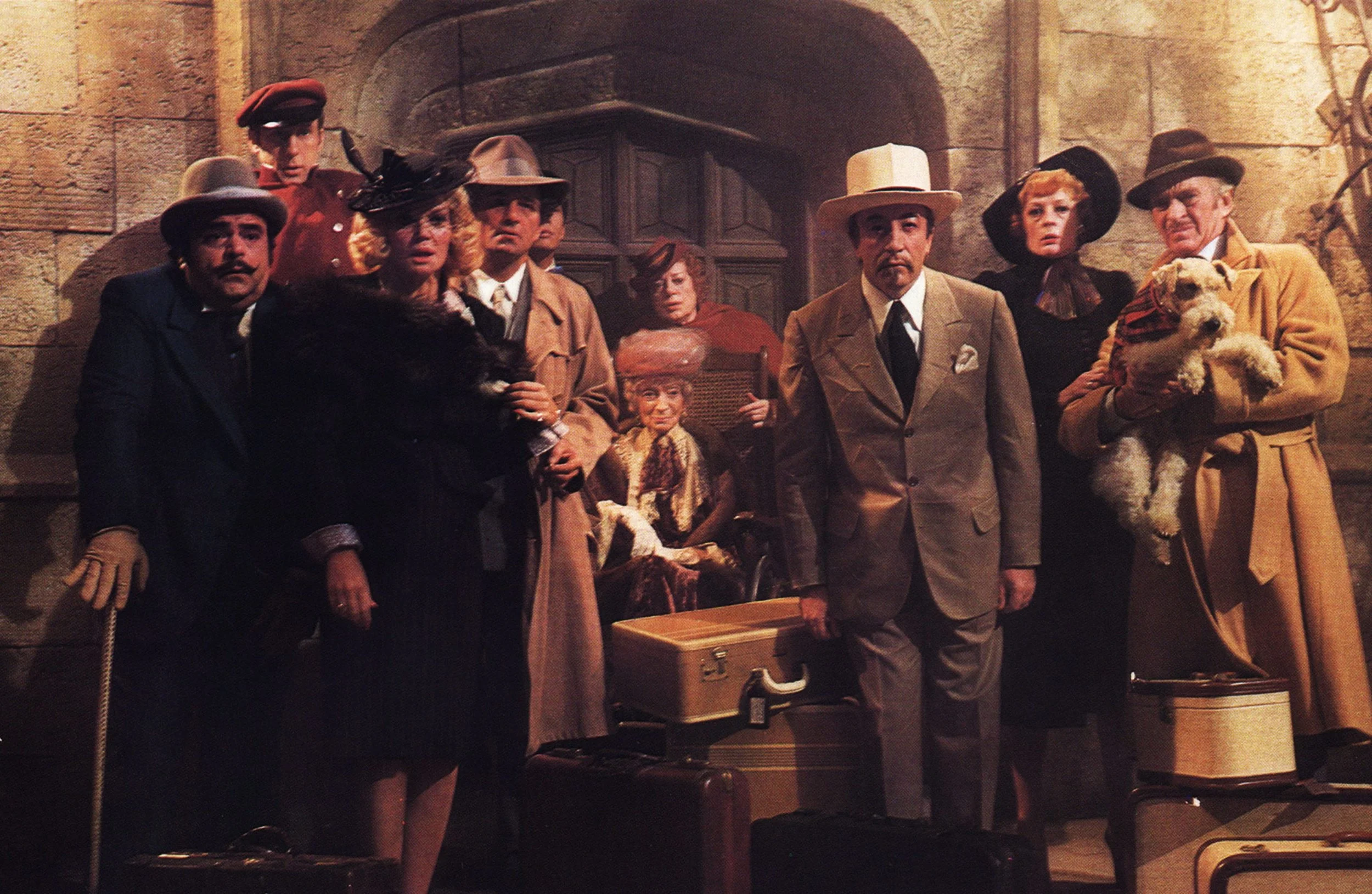This is written by Neil Simon NOT Truman Capote, but I love it and I’m writing about it because it’s my blog. Also, understand this is no where near as fantastic as Clue, but still fun.
Murder by Death is a parody of the popular detective genre of the 1920s. Six sleuths who each make-fun of a popular character are invited to a dinner and death at the house of Lionel Twain (played by Truman Capote). The cast is huge and the jokes are silly. Peter Sellers plays Sidney Wang, a version of Charlie Chan. Peter Falk practices his later Columbo character as Sam Diamond, not Spade. Nick and Nora Charles become Dick and Dora Charleston played by David Niven and Maggie Smith respectively. Milo Perrier takes Hercule Poirot’s place and portrayed by James Coco. Lastly, Ms. Marple . . . I mean, Jessica Marbles is acted out by one of my favorites, Elsa Lanchester. Eileen Brennan, Estelle Winwood, James Cromwell, and Richard Narita play the detectives’ various companions. The cast is rounded out by Alec Guinness and Nancy Walker as Twain’s unusual servants.
Twain promises a substantial sum to the detective who solves the evening’s murder first. I don’t want to give away the mystery or many of the jokes. Here are a few specifics I want to gush about.
Diamond’s “doll” creates a dossier on Twain before they arrive. He asks her where she got the information and she said, “I called him up and asked him.”
Wang (who is played by a white guy which I think was meant to be a joke at all the white guys who played Charlie Chan . . . But I really wish there had been more jokes about him not actually being Chinese) has an adopted son who he makes do everything including standing in the way of danger.
The Charlestons have a dog named Myron and Dora is always carrying a martini glass, even when she’s in a car.
Perrier has a chauffeur that appears to be his boyfriend, but he treats him terribly. Every time something happens to the chauffeur, Perrier says to ignore him. “He just wants attention.” There is also a running gag about Perrier’s relationship to food. For example, he spits out wine and the others think it was poisoned. “Bad year,” he explains.
Mrs. Marbles pushes around her nurse in a wheelchair and has a long standing friendship with Diamond. It’s funny to think of a world where the very English small town Miss Marple hung out with the quick tempered, fowl mouth Spade.
All of the detectives try to out-detect each other.
The screaming doorbell was a soundbite of Fay Wray.
Twain’s insistence that Wang use proper articles and pronouns. “It. IT is confusing!”
Twain’s monologue about mystery books: “You've tricked and fooled your readers for years. You've tortured us all with surprise endings that made no sense. You've introduced characters in the last five pages that were never in the book before. You've withheld clues and information that made it impossible for us to guess who did it. But now, the tables are turned. Millions of angry mystery readers are now getting their revenge. When the world learns I've outsmarted you, they'll be selling your $1.95 books for twelve cents.You've tricked and fooled your readers for years. You've tortured us all with surprise endings that made no sense. You've introduced characters in the last five pages that were never in the book before. You've withheld clues and information that made it impossible for us to guess who did it. But now, the tables are turned. Millions of angry mystery readers are now getting their revenge. When the world learns I've outsmarted you, they'll be selling your $1.95 books for twelve cents.”





